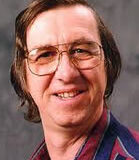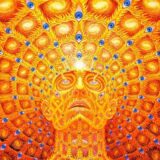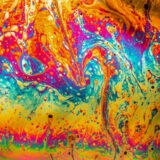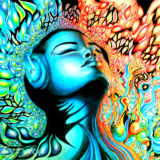Table of Contents
Do People Regret Doing Psychedelic Drugs?
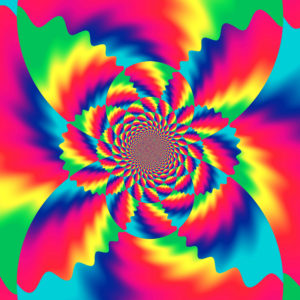
Are There Regrets After Using Psychedelics?
Many people who explore psychedelic drugs, or choose to partake in a psychedelic experience themselves, wonder about any long-term aftereffects. Some people have reported having amazing epiphanies during or following a psychedelic trip. There are instances of people changing their entire life trajectories (mostly for the better). There are many stories about the incredible level of insight and self-exploration a psychonaut gangs access to resulting from a psychedelic trip. Many stories exist of psychedelics being used to party. People use psychedelics to enhance intimacy. There are no doubt many people who have extremely awesome experiences on psychedelic drugs, however, do they regret any part of the experience? Are there any regrets from having taken psychedelic drugs?
How Many People Regret Taking Psychedelics?
Botanical Shaman surveyed 100 people who revealed they had tried a psychedelic, “Do you regret taking psychedelic drugs?” along with a few other questions. The results indicated the sample clearly favored the experience, and most seemed to have very little regrets from having used a psychedelic drug.
Why People Use Psychedelic Drugs
Every person is different and each psychedelic drug can affect a person differently, however, the reasons for choosing to use a psychedelic drug to begin with are rather common. Botanical Shaman surveyed 100 people who revealed they had tried a psychedelic, “Why did you use a psychedelic drug?” The answers, given freely in the words of the participants, were able to be sorted into less than 10 categories. This list is in order from
Recreation (Fun) – 34 percent

A large percentage of participants surveyed (61 percent) responded that they use psychedelics (or used psychedelics) predominantly for the purposes of recreation. Many people seem to associate psychedelics and hallucinogens with having fun; and thus it has become popular in nearly any culture which has embraced psychedelics for nearly any reason, to see employments of the “cultural drug” in the party scene. For example, while LSD was discovered accidentally during research for medicine, it quickly overtook the 60s and 70s club and nightlife. Similarly, natural psychedelics, such as magic mushrooms, may have had significant religious value for many cultures throughout time, but they have also been associated with celebrations and party – style gatherings (within the same tribes and cultures which have employed them spiritually).
Some psychedelic enthusiasts choose to use their drugs alone, but still for fun. Some psychonauts set out to have a fun time with a psychedelic only to wind up experiencing a spiritual journey. In fact, one psychonaut explained that pursuing a psychedelic trip purely for fun has the highest likelihood of going awry. It was subsequently suggested by the same individual to always have a higher purpose in mind when setting out on a psychedelic journey; And it is most certainly possible to have a good time on a psychedelic, while still respecting the drug.
Self-Exploration or Healing – 22 percent
A lot of people begin researching and choose to pursue a certain psychedelic as a way of self-exploration, an attempt to heal an emotional or psychological wound, or to fill another gap of some kind. Some people just want to get to know themselves better. 23 percent of the participants surveyed responded that they chose to use psychedelic drugs predominantly for self-exploration or healing purposes. It is, however, important to understand that this survey does not differentiate between regular psychedelic users, and those who may have only tried them once (as well as those who are potentially casual users). Still, many shaman and medicine men in tribes around the world will argue that every person is different and sometimes it can take multiple experiences to achieve the desired spiritual or healing output.
Many participants offered additional information and insight as to why they selected this option. Many of the participants felt they could not fully understand themselves (believing that no one truly knows themselves) without the aid of a psychedelic. Many of the psychonauts agree with this belief, soundly arguing that psychedelics open spiritual doors which otherwise mostly remain locked for life. Furthermore, many participants believed psychedelics (such as ayahuasca, peyote or mescaline, and DMT) were critically essential in their ability to move on from grief, tragedy, or other heartache. Many participants credit there are psychedelic experience(s) with fully changing their lives for the better and helping them heal from some of the toughest pains of their lives.
Spiritual Journey – 14 percent
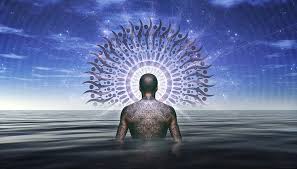
Experiencing a spiritual journey on a psychedelic generally means having ingested enough of the psychedelic to induce hallucinations or visions (or sleeping, in order to have epiphany or prophetic style dreams). Sometimes people have these spiritual journeys by accident or otherwise unintentionally (maybe pursuing a recreational experience only to wind up wanting to change one’s life after seeing the future). Out of the surveyed participants, 14 percent responded that they use psychedelics specifically to set out on a spiritual journey.
Unfortunately, spiritual journeys are not always fun. In fact, sometimes they are the exact opposite: a nightmare. Many psychedelic experts have suggested that this is a natural way for the psychedelic to help the psychonaut (the person who has ingested the psychedelic) solve their spiritual, psychological, or emotional problems. These problems could be issues that the psychonaut is presently dealing with, or they could be issues which have been deep seated in the past.
Those participants whom indicated they used psychedelics to induce a spiritual journey, were also asked how successful the psychedelic(s) were in inducing spiritual journey(s), and whether their journey(s) were pleasant. About half of the participants acknowledged success in achieving a noteworthy spiritual journey on a psychedelic. And about half of those who had a spiritual journey found it pleasant. Some participants offered additional details which seemed to indicate, mostly, that the negative trips were just as life-changing as the positive journeys.
Music/Art Appreciation – 13 percent
A surprisingly large number of participants surveyed indicated they chose to use psychedelics predominantly for music or art appreciation. 13 percent of the participants responded this way. Admittedly, the survey is nonexclusive as far as psychedelics go, so there is no differentiation between the types of psychedelics used for music appreciation among the participants. Regardless, psychedelics of all kinds have been long-known to improve music and art appreciation; This being the exact reason they have been very commonly used at parties, concerts, and other art venues.
Some of the participants offered additional details about the music or art they preferred, and how the psychedelic altered their experience. Most of the participants preferred classical or low-key music. Even those who enjoyed parties, concerts and raves with their psychedelics, acknowledged that classical and low-key music is best matched with a psychedelic experience. Most of the participants agreed that obscure, abstract type of art became more meaningful on psychedelics. Many participants claimed to better understand the artists and their perspectives, both in music and in other arts.
Many of the participants, five of them to be exact, preferred to use psychedelics by themselves in a trusted location, such as their home or a safe spot in the woods they know well, in order to listen to music. The rest of the participants indicated a preference to more public settings, such as art galleries or nightclubs, or taking the drug among a small group of friends with music. Almost all (12 people) who responded “music or art appreciation” acknowledged their psychedelic experience(s) greatly improved music and/or art.
Curiosity (“Just to Know What’s Like”) – 9 percent

9 participants surveyed responded that they used or use psychedelics predominantly for curiosity purposes. Most of these participants indicated in the memo section of the survey that they “just wanted to know what it was like.” Some of the participants explained that they had read other people’s experiences on the psychedelic. Some of the participants noted a trusted friend or relative advocating the use of the drug. Many of the participants noted that they had physically seen the psychedelic drug they wanted to try (or knew how to get it) far in advance to actually deciding to try it.
Most of the participants who responded that curiosity was there main reason for psychedelic drug exploration, noted that they had wanted to try the psychedelic for a long time. They also noted that their psychedelic experience(s) came only after doing a ton of research, sometimes for years. Many psychedelic experts would agree that a psychonaut is more likely to have a positive experience when taking the time to do research and fully understand a psychedelic, so these people are a step ahead! In fact, shaman and medicine men traditionally encourage doing weeks of research and mental probing before engaging in any psychedelic activity.
Intimacy – 6 percent
A lot of plants, dietary supplements, and drugs can help enhance intimacy, prolong sex, and give to people a sense of being closer. Psychedelics commonly come up in many conversations involving drugs and intimacy, as well as aphrodisiacs. 6 percent of participants responded that their predominant use of psychedelics was to improve intimacy in some way. Although the number may seem small, with at least 30 million psychedelic users in the United States alone, that would indicate an estimated nearly 2 million Americans whom have used or do use psychedelics for sex and intimacy purposes.
There were participants of the survey who provided additional insight as to the reason for their selection. Three people explained that they took the psychedelic with their partner (who also took the psychedelic). These couples seem to really enjoy the experience, and felt that it brought them much closer physically and in spirit. Two participants acknowledged their sexual experience on a psychedelic as “the best they ever had.” Another two participants explained that only they used the psychedelic, while their partner refrained, and that the experience was still enhanced for both people involved in the intimacy.
Peer Pressure – 2 percent

The last hundred years of propaganda would have one convinced that peer pressure (also known as “social pressure”) should be at the top of the list for reasons people use drugs of any kind. Only 2 percent of participants surveyed, however, responded that social pressure led them to use a psychedelic drug. Although this is a rather unpleasant reason for ingesting a psychedelic substance, both participants acknowledged having a positive experience on the psychedelic. In fact, both people indicated they were glad they had tried to the psychedelic drug. One of the participants indicated that the peer pressure came from a family member, while the other participant credited a friend.
Do YOU Wish You Had Tried a Hallucinogen?
Most people who have tried psychedelic drugs (hallucinogens included), have acknowledged enjoying the experience, or at least being glad they had tried it. There are some people who regret their entire psychedelic experience altogether. There are even people who have tried psychedelics and claimed that the drug has ruined their life (this being a very small number of people compared to those who enjoyed or positively benefited from their experience). In fact, the number of people who have had extremely positive, life-changing epiphanies from a psychedelic experience is quite high.
A lot of people who try psychedelic drugs later in life, seem to have wished that they would have started experimenting earlier; thus many experienced psychonauts suggest conquering one’s fear of a psychedelic, whether that person tries it in the end or not. It is often helpful to fully research the psychedelic, in order to discover one’s potential for actually trying the drug. Experienced psychonauts suggest that a curious individual needs to understand what a psychedelic does physically in the body and to one’s health, when it should be best administered, proper dosage requirements, the psychological and “psychedelic” effects on the mind, the history of the psychedelic, and past user experiences. After adequate research has been accomplished, it will be clear whether or not the person feels comfortable trying the psychedelic.
Experimenting with psychedelic drugs can sometimes lead to regrets, however, in the end, without even researching a curiosity, one is bound to have regrets for sure!
Disclaimer: BotanicalShaman.com authors suggest speaking to a doctor before ingesting psychedelics, when legal in your area. Botanical Shaman authors are not medical doctors and cannot be responsible for any experiences you choose to have (on psychedelics or not).
